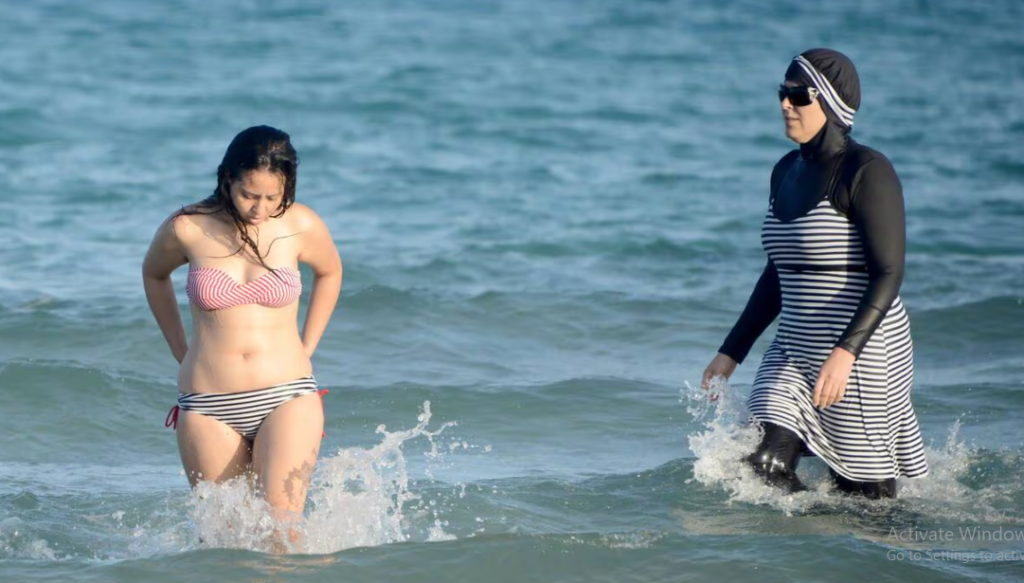Damascus: In a dramatic cultural shift following the ouster of President Bashar al-Assad, Syria’s new interim government has announced a strict conservative dress code, banning women from wearing swimsuits at public beaches and pools. Under the new regulation, women must now wear full-body swimwear — commonly referred to as the burkini — while swimming in public spaces.
The dress code, signed into effect by interim President Ahmad al-Shara and announced by Tourism Minister Mazen al-Salhani, marks the first major socio-cultural directive under the new Islamic rule in Syria since the fall of the Assad regime in December last year.
“This decision reflects the needs of public interest and social harmony,” Salhani said in a statement published on Facebook. “All individuals, whether tourists or locals, must wear appropriate swimwear at public beaches and swimming pools. Swimwear should not offend public sensibilities and must respect cultural sensitivities.”
The new guidelines specify that modest swimwear covering most of the body — such as burkinis or loose-fitting suits — will be required for women. Additionally, women must wear beach cover-ups or loose clothing when transitioning from the beach to other public areas.
Men are also subject to new rules under the dress code. Shirts are now mandatory in hotel lobbies, restaurants, and communal areas near swimming zones. “Wearing tight or transparent clothing is strongly discouraged,” the directive states. “In public spaces outside the beach, loose garments covering shoulders and knees are preferred.”
However, the ministry clarified that Western swimwear would still be allowed at international resorts, luxury hotels, and private beaches and pools. Lifeguards and beach monitors will be tasked with ensuring compliance with the new rules.
Islamic Governance Taking Hold
The latest decree reflects the growing influence of Hayat Tahrir al-Sham (HTS), the hardline Islamist group that now governs Syria. HTS, formerly known as the al-Nusra Front and once affiliated with al-Qaeda, is classified as a terrorist organization by the U.S. and U.K.

President Ahmad al-Shara, a senior HTS leader, signed the dress code directive and had earlier this year signed an interim constitution mandating five years of Islamic rule. In March, he declared that rewriting Syria’s constitution would take at least three years, with national elections possible within five years.
Human rights organizations have raised alarm. Human Rights Watch, in a report released earlier this year, expressed “serious concerns about civil liberties and gender rights under the new regime.”
From Terrorist to Political Leader
Once labeled a terrorist by the United States, Ahmad al-Shara had a $10 million bounty on his head. However, following his rise to power, the political tides have shifted.
In a controversial diplomatic move in May, U.S. President Donald Trump met with al-Shara in Riyadh, reportedly at the behest of Saudi Arabia. Trump publicly shook hands with the HTS leader and lifted all U.S. sanctions on Syria that had been in place since 1979. Despite this overture, HTS remains designated a terrorist organization by the U.N., the U.S., and the U.K.
As Islamic governance becomes more entrenched in Syrian law, international observers are watching closely. The swimsuit ban is seen by many as an indicator of broader cultural and legal transformations underway — ones that could redefine everyday life in post-Assad Syria.










